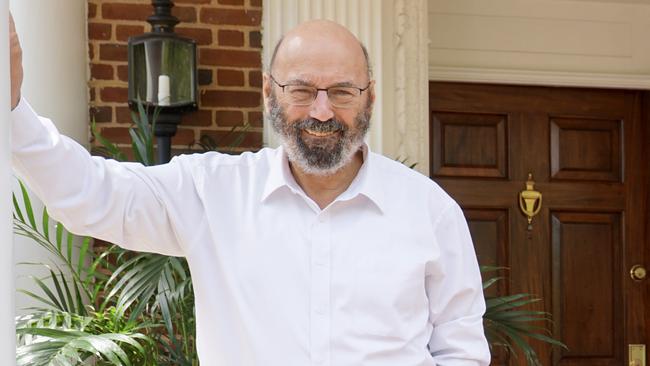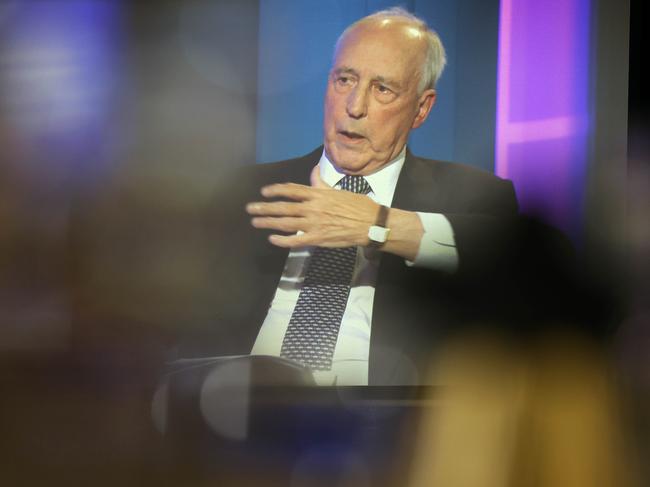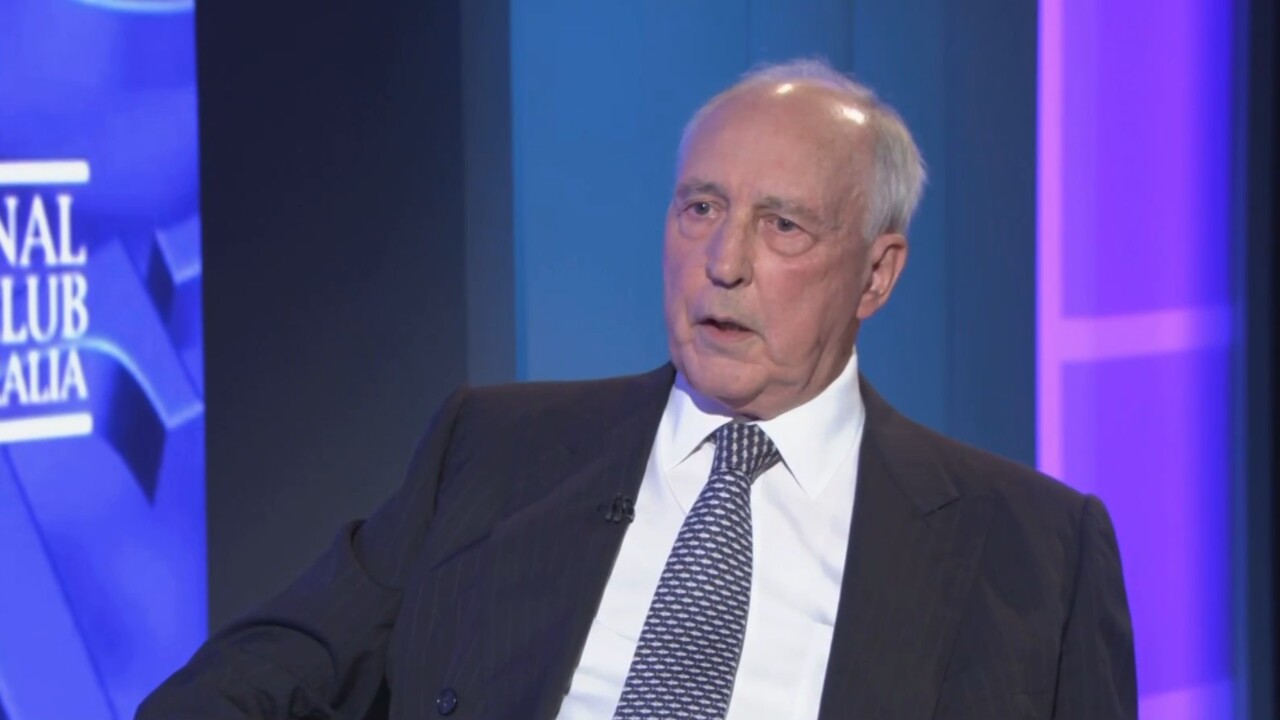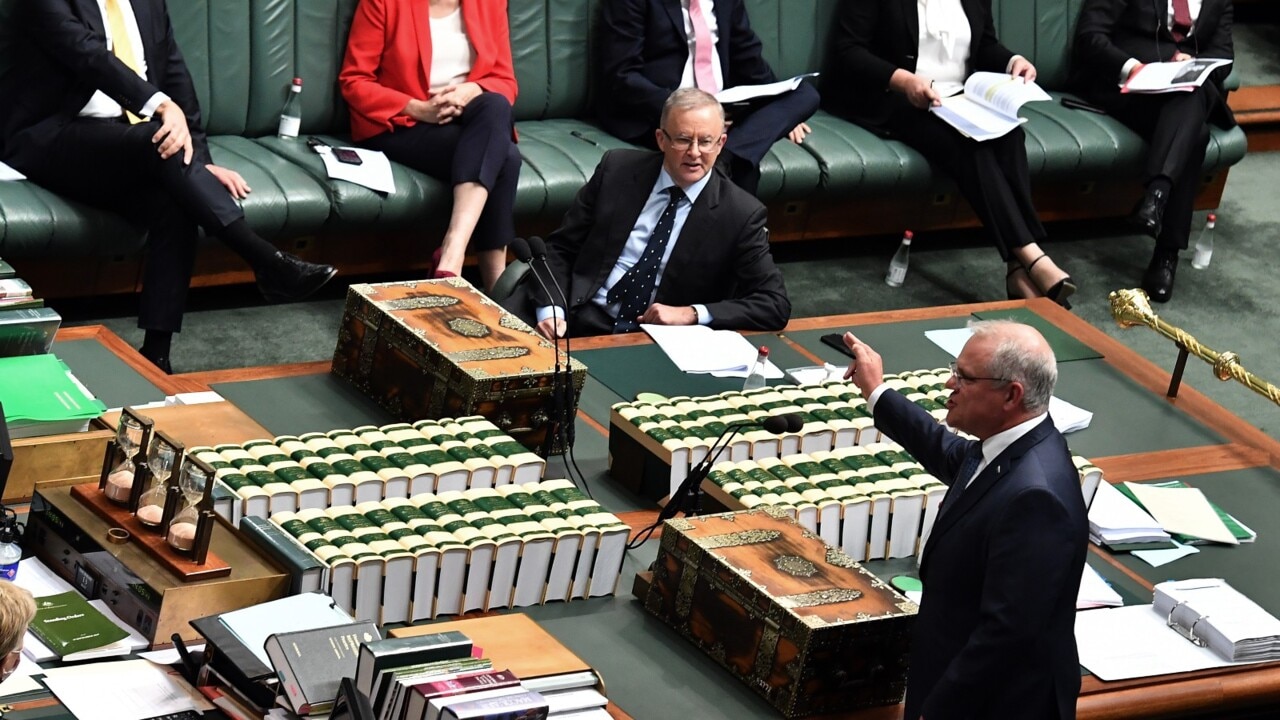Nuclear submarines’ not-so-secret mission: ‘project power’
Ambassador to the US Arthur Sinodinos says nuclear submarines, will allow Australia to operate ‘further up’ north into Asia.

Australia’s top diplomat in Washington has offered the frankest public explanation yet of the government’s decision to purchase nuclear submarines, saying the nation needs to “project power” further north into Asia rather than simply protect the Australian mainland.
Ambassador to the US Arthur Sinodinos said nuclear-powered submarines had been selected for their ability to operate “further up” into the region, providing effective confirmation they are intended to lurk off the Chinese coast. But former prime minister Paul Keating ridiculed the idea that eight Australian nuclear submarines would have any impact on China when they were delivered in 20 years’ time. “It’ll be like throwing a handful of toothpicks at a mountain,” Mr Keating told the National Press Club.
Scott Morrison had argued the planned Attack-class design – which would have had a shorter range than a nuclear boat – was dumped “because it no longer was going to be able to do the job that we needed these boats to do”.

Mr Sinodinos went further, telling the Hudson Institute the AUKUS submarine decision was part of a wider “defence philosophy”. “We want to, in these deteriorating strategic circumstances, be able to project our power further up, rather than taking an approach that all our defence has to be a defence of the mainland,” he said. “This is about how we project power and therefore shape the security environment where we operate in the Indo-Pacific.
“We’re doing that because we want to be more proactive in shaping the environment … the challenge for us in the region today is not to sit back and be the passive recipient of whatever may be happening, but seeking to shape events.”
His comments came as Foreign Affairs Minister Marise Payne met her Indonesian counterpart Retno Marsudi, seeking to ease concerns in Jakarta over Australia’s nuclear submarine ambitions.
Australian Strategic Policy Institute executive director Peter Jennings said Mr Sinodinos had “captured the essence of it”.
“The reason you need nuclear propulsion is to get the range. We don’t need the range to get to Antarctica, to Peru, or South Africa.
“Our government may be shy to say so, but the place that range is most relevant is going to be into north Asia, because of the threat that is presented by China.”

Lowy Institute international security program director Sam Roggeveen said the idea Australia wanted to operate its submarines close to China had been the subtext to the AUKUS announcement, “but it is rare to hear it quite so bluntly”.
He said it showed how closely the AUKUS partnership ties Australia to US military strategy.
“After all, if we were operating independently without the alliance, I can’t think of any reason why we’d be wanting to operate so far north.”
Mr Keating said Australia should not risk getting involved in a military conflict with China over Taiwan – the most likely flashpoint for any US-China war – declaring the island was “not a vital Australian interest”.
“ANZUS commits us to consult in the event of an attack on US forces, but not by US forces,” the longtime China-backer said.
“Which means Australia should not be drawn, in my view, into a military engagement over Taiwan, US sponsored or otherwise.”
He said China was “simply too big and too central to be ostracised”, and the US could no longer hope to be the “security guarantor in Asia”.
Mr Keating said Australia and the US needed to accept China was the pre-eminent power in Asia. He said expecting it to be no more than a stakeholder in the US-led global system “would make a cat laugh”.
Defence Minister Peter Dutton mocked the former Labor prime minister on Twitter, suggesting he was putting China’s interests ahead of Australia’s.
“Important speech today by former dear leader and Grand Appeaser Comrade Keating where he talks down Australia (yet again).”
Labor MP Peter Khalil, a member of parliament’s intelligence and security committee, said Mr Keating downplayed the strategic realities in the Indo-Pacific from Xi Jinping’s increasingly aggressive China.
“Keating is wilfully blind to China’s international aggression through cyber attacks, its retaliatory tariffs on Australian exports, and its breaches of international law to create artificial islands that risk freedom of navigation in international waters,” he said.
Mr Keating has had a long association with China since his time as prime minister, serving as chair of the China Development Bank advisory council for more than a decade.
More Coverage









To join the conversation, please log in. Don't have an account? Register
Join the conversation, you are commenting as Logout